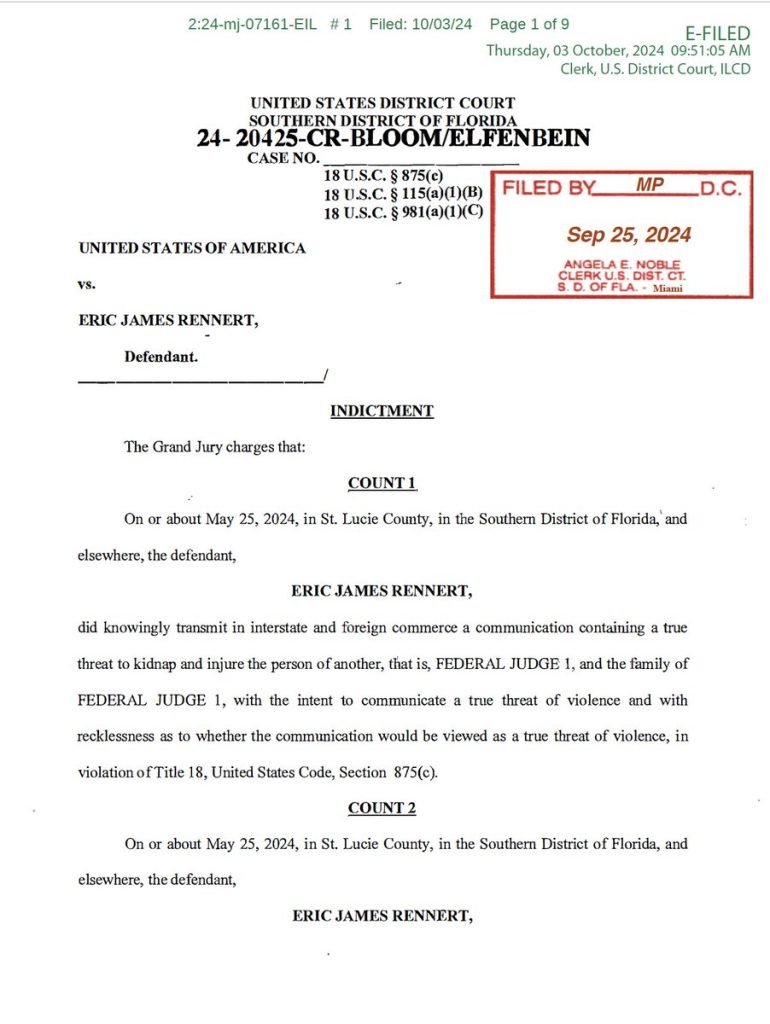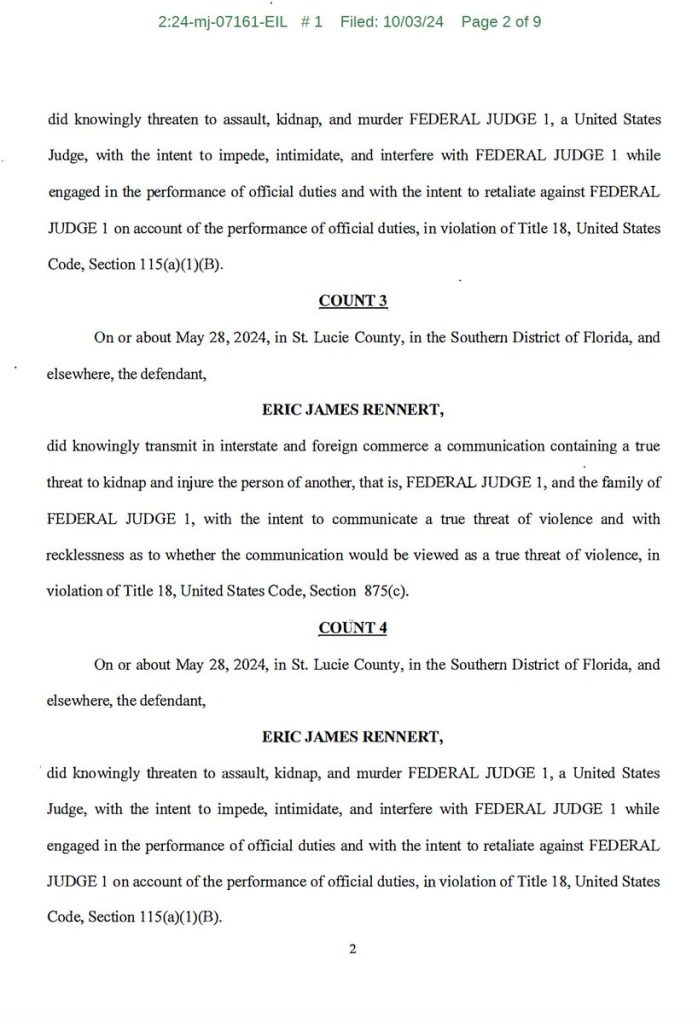Man Charged With Threatening To Kidnap, Kill Judge Who Tossed Trump Documents Case
An Illinois man has been arrested and charged after allegedly threatening to kidnap and kill U.S. District Judge Aileen Cannon, a Trump appointee who dismissed the Biden DOJ’s classified documents case against their leading political rival.
Eric James Rennert, 65, is facing five federal charges for allegedly threatening to kidnap and kill Judge Cannon, who is now overseeing the trial of would-be Trump assassin Ryan Routh.
The judge was not named in the indictment, though it did confirm that the threats were made St. Lucie County, Florida, the same county where Cannon resides. Only one other judge is based out of the Fort Pierce courthouse where Cannon works, leading to widespread speculation that the Trump-appointed judge was indeed the target.
VOTE NOW: Are You In Favor Of Term Limits For All Members Of Congress?
Cannon was later confirmed to have been the target of the threats in follow-up reports.
Rennert allegedly made threats three times in May and July as retaliation for the judge’s “performance of official duties,” the indictment alleges. Rennet appeared in federal court in Urbana, Illinois on Thursday, where a judge ordered him to be held without bail. The suspect will now be transported to Florida for an upcoming detention hearing.


Cannon recently tossed the case against former President Trump and others, which accused him of mishandling classified documents. Trump was charged by the Biden DOJ after President Biden himself was found to have left troves of classified documents in multiple locations across the country, including a Philadelphia office building and his Wilmington garage.
A special counsel investigation ultimately opted not to bring charges against Biden due to his apparent mental decline. Special Counsel Robert Hur believed that a jury would be unable to convict after Biden demonstrated numerous signs of declining cognitive ability.
Cannon ultimately ruled that special prosecutor Jack Smith’s appointment by Attorney General Garland violated constitutional precedent.
“The relevant history, according to Special Counsel Smith, shows that Congress tacitly authorized—or silently acquiesced to—the use of Section 515 (or its predecessor statutes) to appoint “special attorneys” like himself… Upon review of the murky historical record, the Court determines that, whatever themes can be drawn from that background, they cannot supplant the plain language of the statute itself, which clearly does not vest the Attorney General with such authority,” the judge wrote in her ruling.
Smith is currently appealing the decision.
(ALERT: Biden’s New Executive Order Will Crush The US Dollar For Good)


